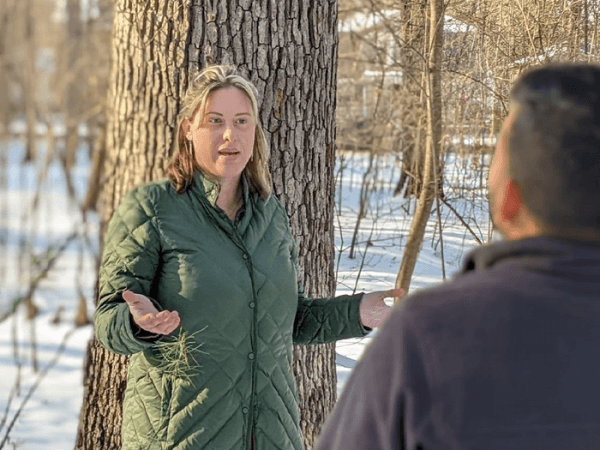Researchers in Penn State’s College of Agricultural Sciences will use a newly awarded $1.5 million grant from the U.S. Department of Agriculture to work with 13 other land-grant universities in the eastern U.S. to create an education program that would help private forests owners adapt to and mitigate climate change.
The funding comes from the USDA’s National Institute of Food and Agriculture through its Agriculture and Food Research Initiative, the nation’s leading competitive grants program for agricultural sciences. The award is aimed at preparing forest owners to take advantage of carbon market opportunities and prepare the forestry extension workforce to better serve their clients in forest carbon and climate issues.
Forests are the lowest-cost climate-change solution available, according to Melissa Kreye, assistant professor of forest resource management, who leads the research team. U.S. forests comprise more than 90% of the land sector’s carbon sequestration potential and offset up to 20% of total U.S. fossil fuel emissions. But forests also are vulnerable to the impacts of climate change due to increased risks from weather, pests, fire and other climate-driven disturbances.
Read more at Penn State
Image: Forest landowner interest and participation in carbon-offset projects remains a major, unresolved bottleneck requiring much-needed change, according to lead researcher Melissa Kreye, assistant professor of forest resource management (shown here). The Penn State-led program is intended to address that situation using an integrated, stakeholder-driven approach to developing and expanding extension activities that lead to the adoption of practical solutions and durable change. (Credit: Jesse Kreye/Penn State)


